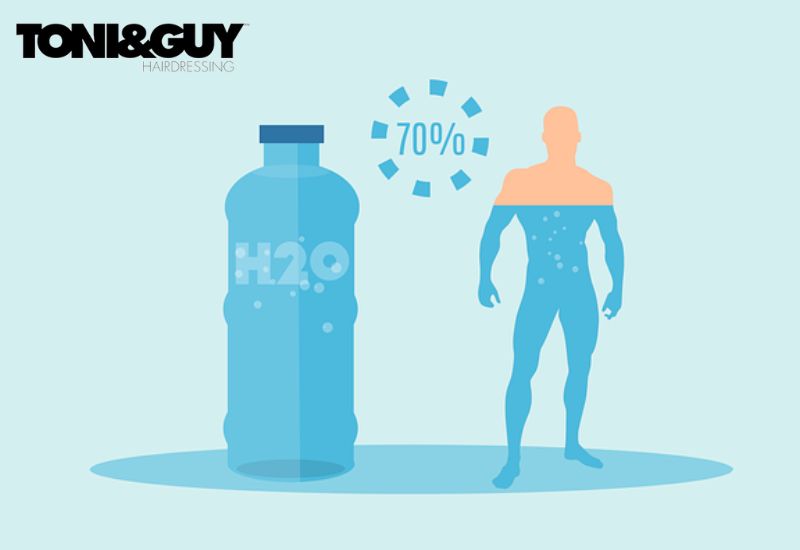
Introduction
The close connection between skin health and diet is a key component in the quest for glowing skin. A balanced diet is a commitment to improving and caring for one’s skin, not just a matter of what foods one eats.
The complex dance of essential nutrients, each of which is essential to the vitality of the complexion, leads to radiant skin.
We set out on a guided exploration, covering everything from the collagen-boosting properties of particular vitamins to the rejuvenating power of antioxidants.
Get ready for an enlightening journey into the world of nutrition, where the promise is not just a healthy diet but also an understanding of the significant influence that eating well can have on attaining that desired, glowing complexion.
The Basics of Skin Nutrition

The foundation of healthy skin is a diet high in nutrients, which provides our body’s largest organ with essential nutrition. The importance is seen in the clear relationship between our diet and skin health.
Crucial nutrients from a balanced diet, such as vitamins, minerals, and antioxidants, are crucial for collagen formation, preserving skin suppleness, and fending off oxidative damage.
Nutrition has a huge impact on everything, from promoting a natural glow to helping with skin regeneration. Recognising this inherent link highlights the significance of mindful eating, turning every meal into an opportunity to invest in the healthy, glowing skin we all want.
Building Blocks of Healthy Skin
The dynamic combination of vital nutrients—vitamins, minerals, and antioxidants—that together strengthen and revitalise our skin are the building blocks of good skin. Together, these components support the synthesis of collagen, provide protection from external stressors, and add a young glow.
Hydration is essential for maintaining the elasticity and suppleness of skin. Drinking plenty of water maintains the ideal moisture content, avoiding dryness and bolstering the skin’s natural barrier of defence.
These dietary elements and hydration work together to create strong, radiant skin, highlighting the all-encompassing strategy needed to attain and maintain a bright complexion.
Essential Nutrients for Glowing Skin

Flaxseeds, walnuts, and seafood such as salmon are rich sources of omega-3 fatty acids, which have strong anti-inflammatory effects that are essential for healthy, radiant skin. These vital fatty acids protect the skin from irritation and redness while promoting a smooth, even complexion.
Omega-3 fatty acids help to prevent premature ageing by reducing inflammatory responses and maintaining the suppleness of the skin.
Omega-3 fatty acids are a valuable ally in the quest for a radiant and healthy glow because consuming these nutrient-rich sources increases the natural luminosity of the complexion while simultaneously addressing the underlying causes of skin issues.
Antioxidant-Rich Foods
Foods high in antioxidants, found in colourful fruits like berries and veggies like spinach, are great for preserving the health of your skin. Rich in vitamins A, C, and E, these nutrients protect the skin from free radicals that cause premature ageing by battling oxidative stress.
By counteracting these damaging chemicals, antioxidants stop the deterioration of collagen and lessen the visibility of wrinkles and fine lines.
These nutrient-dense meals boost the skin’s defences, which not only results in a more youthful complexion but also a natural glow. Including this vibrant assortment in your diet is a tasty way to nourish your skin and maintain long-term health.
Vitamin C for Collagen Production
Through its ability to promote the manufacture of collagen, a crucial structural protein necessary for preserving the suppleness and firmness of the skin, vitamin C plays a critical role in skin health. Vitamin C is abundant when you include citrus fruits in your diet, such as oranges, strawberries, and kiwis.
These foods function as potent antioxidants that help protect the body from environmental damage, in addition to helping the body produce collagen. Increase the elasticity of your skin and encourage a smooth surface by including these vitamin C-rich treats in your regular diet.
ALSO CHECK – Ways to Protect Your Hair from Sun Damage
Hydration for Skin Radiance

The element of life, water, is essential to skin health since it helps keep skin hydrated and gives it a glowing appearance. Skin suppleness, elasticity, and an efficient barrier against environmental stresses are guaranteed by proper skin hydration.
Make drinking water a daily priority to support plump and bright skin. Try to get at least eight glasses every day. Include foods high in water content, such as cucumber and watermelon, in your diet.
Limit other dehydrating variables as well, such as drinking too much alcohol and caffeine. Adopt a comprehensive strategy for staying hydrated by using moisturisers and, in arid areas, using a humidifier. By prioritising hydration on a regular basis, you strengthen the natural resilience of your skin and reveal a radiant, healthy face.
Herbal Teas and Infusions
Explore the world of herbal teas to find a skin-beneficial natural elixir. Herbal teas with anti-inflammatory and antioxidant qualities, such as chamomile, green tea, and rooibos, are good for your skin.
These infusions aid in the removal of toxins from the skin, reduce inflammation, and encourage a clearer complexion—all of which contribute to skin detoxification. Herbal teas, abundant in vitamins and polyphenols, promote the production of collagen, improving the suppleness of the skin.
These teas’ moisture and herbal deliciousness support overall wellness, which benefits your skin in addition to outward care. Drinking herbal teas on a daily basis will help you achieve a vibrant and refreshed complexion by adopting their holistic approach to beauty from the inside out.
Foods to Avoid for Healthy Skin
Sugar has a significant effect on skin health because a high intake can aggravate a number of skin conditions. Consuming too much sugar causes inflammation, which deteriorates collagen and raises the risk of acne and early ageing. Reduce your intake of refined sweets and switch to natural sweeteners to encourage clearer skin.
Adopt a diet low in processed foods and high in fruits, vegetables, and whole grains. This well-thought-out method helps to preserve general health in addition to treating skin issues.
By controlling your sugar intake, you may cultivate beauty from the inside out and take the first steps toward a brighter complexion and long-term skin well-being.
Foods That Trigger Inflammation
Some foods have the potential to aggravate skin problems like eczema and acne by causing inflammation in the skin. It’s important to recognise and stay away from potential irritants like dairy, processed meals, and high-sugar goods.
Skin health can be considerably enhanced by adopting a balanced, anti-inflammatory diet high in fruits, vegetables, whole grains, and omega-3 fatty acids.
These decisions help the body’s natural healing processes by lowering inflammation. People can proactively reduce skin inflammation and promote a brighter, healthier complexion from the inside out by making attentive and nutritious eating choices.
Toni&Guy Salon

The international salon brand Toni&Guy, which has several locations in Chennai and provides a wide range of state-of-the-art services, has developed into a beauty utopia. A group of knowledgeable stylists with up-to-date training at each site offers customised haircuts, eye-catching colouring, and fashion-forward styling.
The salon’s varied offers, which suit both traditional and modern tastes, demonstrate their dedication to perfection. Toni&Guy in Chennai is known for providing top-notch hairdressing services and setting industry standards. They guarantee that their clients depart feeling and looking their best.
Conclusion
The path to attaining and preserving radiant, healthy skin is closely connected to the dietary decisions we make. It’s clear from our exploration of the importance of important nutrients, hydration, and conscious eating choices that having glowing skin starts from the inside out.
Vitamin C’s ability to increase collagen and herbal teas’ ability to cleanse are just two examples of how each dietary component supports the general health of our skin.
Accepting these realisations enables us to choose foods in a way that not only improves the health of our skin but also shows that we care about our overall well-being. Allow this investigation to serve as a roadmap for achieving a radiant, well-nourished complexion that exudes health and attractiveness.
FAQs
- What nutrients are needed for glowing skin?
Essential nutrients for glowing skin include antioxidants from fruits and vegetables to fight oxidative stress, omega-3 fatty acids for their anti-inflammatory properties, vitamin C for collagen formation, and water for suppleness. Together, these components promote and nurture skin health, which results in a glowing complexion.
- What nutrient is needed for making healthier skin?
Collagen is a vital nutrient for better skin. It is the most prevalent protein and keeps the elasticity, hardness, and structure of the skin. Collagen formation is aided by essential vitamins A, C, and E as well as water. All of these nutrients work together to support healthy skin and a bright, resilient complexion.
- What nutrition does the skin need?
For optimum health, the skin requires a range of nutrients, such as antioxidants, minerals, omega-3 fatty acids, and vitamins A, C, and E. These components promote the synthesis of collagen, fight oxidative stress, and enhance skin suppleness. Maintaining water levels and fostering a healthy, glowing complexion also depend on getting enough sleep.
- Which type of nutrient helps maintain healthy skin?
Structural protein collagen supports elasticity and stiffness in the skin, which is essential for good health. Aside from that, important nutrients like omega-3 fatty acids and vitamins A, C, and E maintain overall skin vitality, encourage collagen formation, and guard against oxidative stress.


